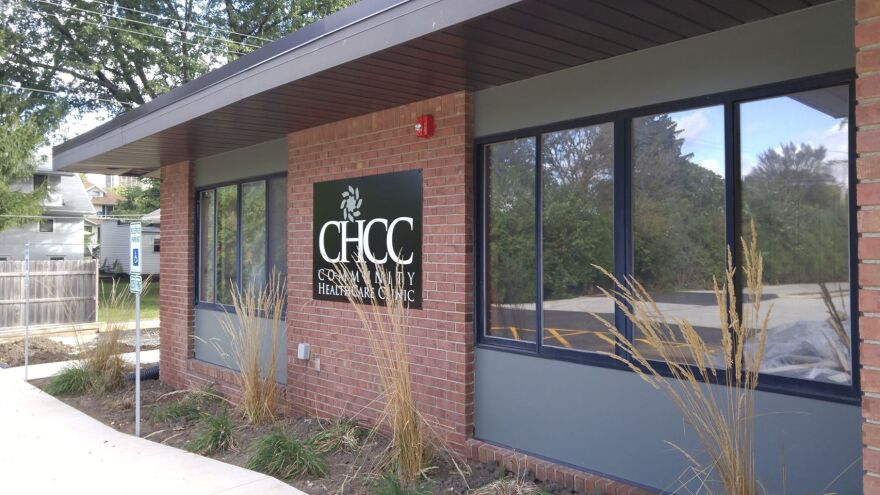Leaders at a free clinic in Normal that serves the uninsured say they’ve put new safeguards in place after a series of administrative blunders cost them their tax-exempt status with the IRS.
The Community Health Care Clinic (CHCC), which is funded by grants and donations, learned in August that its nonprofit status had been revoked, officials said. The actual revocation happened May 15, after CHCC failed to file its Form 990 with the IRS for three consecutive years. The clinic’s accountants apparently tried to notify at least two clinic board members about the problem, but those two members left the board at the end of 2022 and now live out of state, said CHCC board chair Jamie Mathy.
“All the holes in the Swiss cheese lined up, is how one of my board members put it,” said CHCC executive director Mike Romagnoli.
Mathy said the board is one of the most organized and well-run that he’s ever served on – but that the pandemic sapped everyone’s attention.
“Nobody noticed because we weren’t in our normal meeting space, in our normal meeting rhythm, and now we’re looking at little squares on Zoom calls. Nobody noticed that things had gotten missed,” he said.
As a stopgap measure, CHCC is working to set up an option to receive donations at the Bloomington-based Illinois Prairie Community Foundation (IPCF), Mathy and Romagnoli said. That will keep those donations tax-deductible, and then they’ll be released to the clinic once its nonprofit status is reinstated, Mathy said. (A spokesperson for IPCF said they don't comment on funds not yet voted upon by its board.)
It’s unclear how long that reinstatement will take. Romagnoli said they’re expecting early to mid-2024, and that they’re expecting to be effective retroactively.
“It’s a process, and it’s a pain, but we’re fixing it,” Romagnoli said.
CHCC is hardly the first nonprofit to lose its tax-exempt status for failing to file the proper paperwork. It’s happened to 22 other Bloomington-Normal nonprofits this year along, and another 20 last year, according to an IRS database.
CHCC served over 1,100 patients in 2022. Now its 30th year, the clinic relies on grants, donations, and volunteers – plus a referral partnership with Bloomington-Normal’s two hospitals.
“The good news is, patient care never stopped,” Mathy said. “And that’s our most important function, is taking care of our clients to make sure they get what they need. That never missed a beat. That’s the part we’re really good at, it turns out.”
Mathy and Romagnoli said they’ve kept their biggest funding partners informed about the issue, though some individual donors have not yet been notified. It’s possible that a lengthy delay in the reinstatement could put some funding in jeopardy, as many funders require that nonprofit status. For example, the clinic won’t be able to get a Normal Township grant this year, Mathy said.
“Some of this is gonna depend on how long it takes the IRS to process our reinstatement paperwork. It’s possible that we’re not reinstated before some of the grants would normally pay out, and we might miss out on that for this year as well. We don’t know,” Mathy said. “Our local partners that we’ve talked to have been very understanding and working with us.”
One of those local partners is the John M. Scott Health Care Trust, from which the City of Bloomington awards grants every year. This year CHCC was awarded $169,000 – or about 17% of its budget – from the John M. Scott program. But nonprofit status is required for eligibility.
The episode has prompted the clinic and its board – with guidance from outside volunteer accountants – to begin developing new controls to stop this and other issues from happening again, Mathy said. They’re updating bylaws, and will share with their accountants an updated list of board officers and contact information every year, Mathy said.
“Now, we’re doubling back down to re-establish those norms of saying, ‘These committees are responsible for these things. Documenting all those things. These meetings will have these timelines,’” Mathy said. “And just making sure we’re putting in numerous different controls to make sure this can’t happen again, that we can’t miss paperwork, and that we put in all those checks and balances for who’s responsible for this, what day does it have to be done, which meeting should it be presented on, and creating checklists to make sure it happens going forward.”



